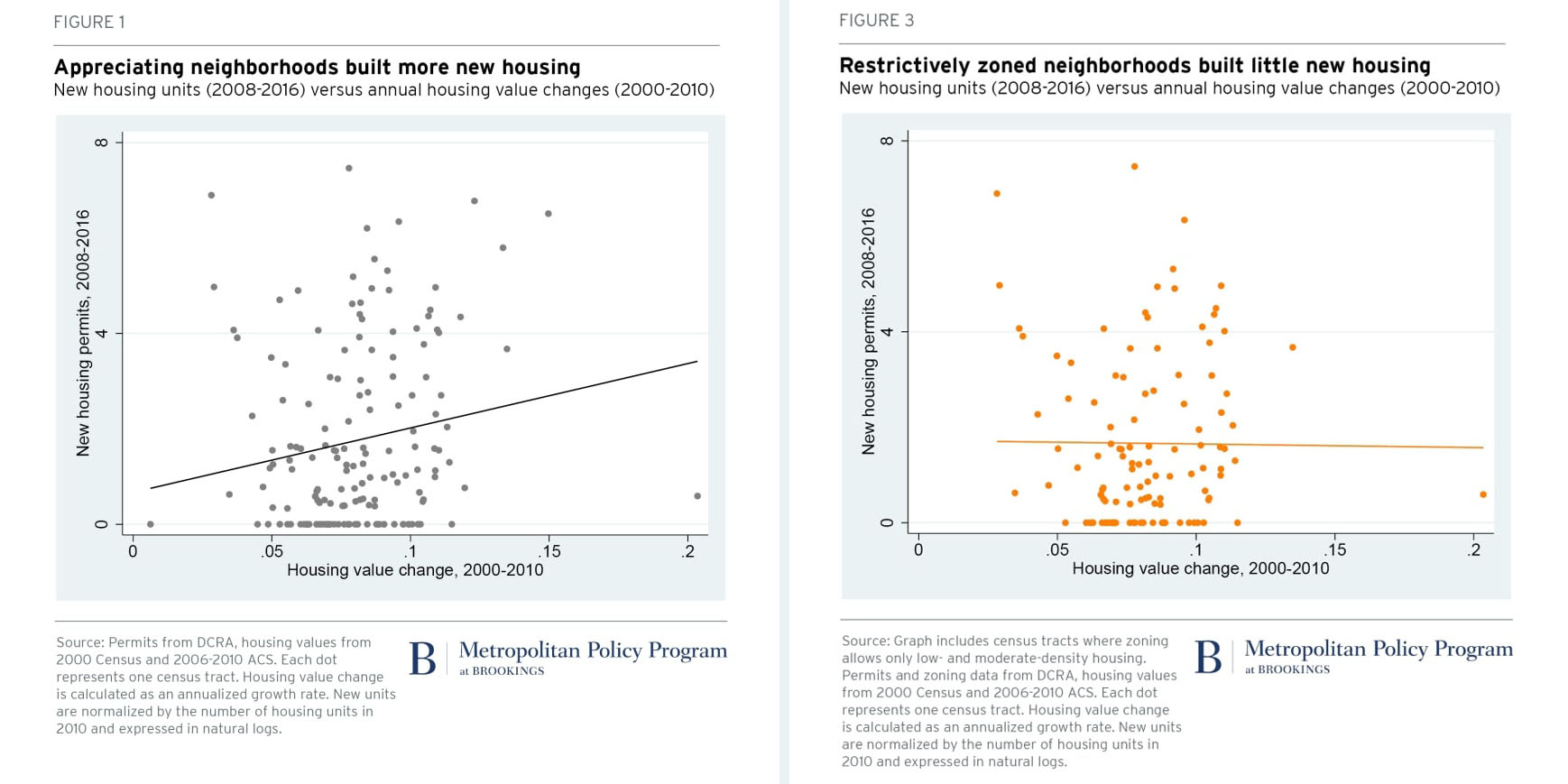This week, JLF’s Jon Sanders published a research brief on restrictive housing regulations and their relationship with housing shortages in parts of the country. Sanders writes:
Outdated zoning, rent controls, and other regulations are preventing people in high-demand urban settings from providing affordable housing arrangements, such as adding accessory dwelling units (ADUs) like granny flats and garages converted into living spaces. Restrictive zoning is also preventing developers from adding housing options to areas where they’re in most demand. These have unintended consequences, even affecting how people move about in cities.
Sanders explains that increasing regulations on housing leads to fewer available living units in the areas where people want to live. As the basic laws of supply and demand dictate, an increase in demand without a complementary increase in supply leads to increased prices – making affordable housing out of reach for many people. Sanders calls upon research from the Brookings Institute to illustrate this point:
New research from the Metropolitan Policy Program at Brookings shows that restrictive zoning is doubly harmful to increasing housing options in high-demand urban areas. This study examined the impact of zoning regulations on housing supply in Washington, D.C. from 2000 to 2010:
“…Restrictive zoning makes affordability worse in two ways. Not only does it limit the amount of new construction, but it also encourages property owners in expensive neighborhoods to upgrade the size or quality of existing structures, thereby making them still more pricey… These expansions or interior upgrades such as kitchen and bathroom renovations increase the value of the home but do not expand the number of homes in a neighborhood. Additions and alterations benefit existing homeowners, but make it more difficult for new residents to buy into those neighborhoods.”
 If strict zoning was not in place, areas that are not currently designated for housing could create new units for families. In that same vain, if regulations relaxed in some areas to allow for accessory dwelling units such as granny flats or converted garages, there would be more available housing in those places. Sanders writes:
If strict zoning was not in place, areas that are not currently designated for housing could create new units for families. In that same vain, if regulations relaxed in some areas to allow for accessory dwelling units such as granny flats or converted garages, there would be more available housing in those places. Sanders writes:
Planners, policymakers, and other concerned citizens want more affordable housing options and less traffic congestion. But instead of more regulation, the way to bring those things about more effectively may be less restrictive land-use and other regulations. With fewer government obstacles and more freedom to operate, people can respond to market needs more quickly and in a greater variety of ways.
Read the full brief here. Learn more about affordable housing in North Carolina here.

